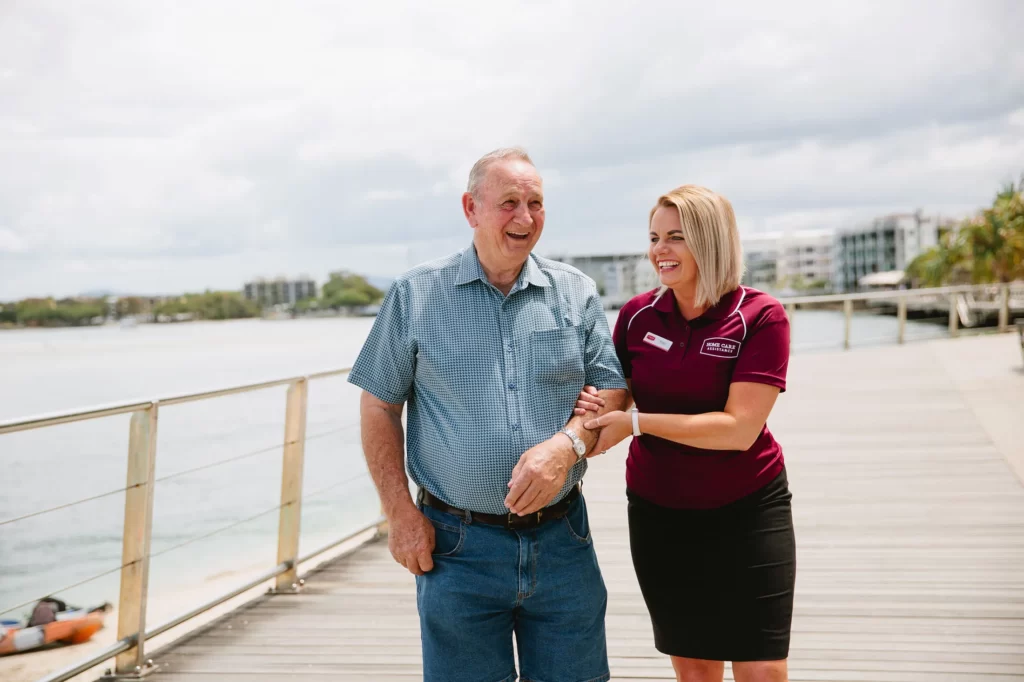Parkinson’s disease causes physical issues such as spastic movements, tremors, and stiffness. However, engaging in daily exercise can maintain the connections throughout the central nervous system and enhance physical movement. Seniors with Parkinson’s experience greater degrees of symptomatic relief by engaging in exercise. The following activities can benefit ageing adults with Parkinson’s disease.
1. Singing
Parkinson’s disease impacts muscles that enable speech. In time, the voice becomes quieter and speech becomes slower. However, singing strengthens vocal muscles. Seniors with Parkinson’s can have better vocal clarity and quality by simply singing for one hour a few times each week. Singing out loud also increases vocal volume. Encourage your loved one to sing while his or her favourite songs play. Singing along with karaoke machines and joining a choir are two other options seniors should consider. The more your loved one sings, the stronger his or her voice becomes.
Parkinson’s disease is one of the most serious health issues among the elderly. Seniors living with serious health conditions often need extensive assistance in and outside the home. Home Care Assistance is a trusted provider of 24-hour care. Newcastle Home Care Assistance provides care workers who are expertly trained to assist seniors with bathing, grooming, light housekeeping, and various other daily tasks, and we also offer specialised Alzheimer’s, dementia, stroke, and Parkinson’s care.
2. Walking
Walking enhances balance and physical body rhythm. If your loved one is unstable while ambulating, he or she can use a cane or walker. Encourage walking by taking your loved one for a walk around the block, at a nearby park, or a nature preserve where he or she can enjoy the surroundings. Go on a shopping excursion and park further away from the entrance. Start slow and allow your loved one to walk at his or her own pace. As your loved one gets stronger, increase the length and intensity of the journey.
From walking to performing basic housekeeping tasks, older adults with Parkinson’s disease may need help with an array of activities. Whether your elderly loved one needs part-time assistance with basic household chores or you need a break from your caregiving duties, the Newcastle respite care experts at Home Care Assistance are here to help. All of our respite care services are backed with a 100% satisfaction guarantee, there are no hidden fees in our contracts, and we never ask our clients to sign long-term contracts.
3. Swimming
Swimming is a great activity for enhancing overall muscle strength and removing weight-bearing stress on joints. The resistance encountered while submerged in the water can decrease pain and muscle stiffness. Varying strokes while swimming encourages muscle coordination and enhances motor skills.
4. Tai Chi
Once part of the Asian martial arts culture, tai chi is now practiced by many seniors around the world as a means of creating inner peace and increasing physical balance. The art of tai chi combines controlled breathing with rhythmic slow movements and proper posture. While performing tai chi, participants continually transfer their weight from one leg to another while making various arm movements. Seniors who engage in tai chi are better able to lift their feet and legs while walking, which enhances gait and prevents tripping and falling.
5. Yoga
Yoga trains seniors to control their breathing, and the activity also strengthens the muscles throughout the body while enhancing balance. By practicing yoga, seniors can reduce muscle rigidity and spastic movements. Many communities offer yoga classes. If your loved one is a bit self-conscious, he or she can practice yoga in the privacy of home by watching instructional DVDs or online videos.
Hiring a professional care worker is one of the best ways to help your loved one lead a healthy life and reduce some of the symptoms associated with Parkinson’s disease. Families looking for top-rated Newcastle elderly home care providers can reach out to Home Care Assistance. From respite care to specialised Alzheimer’s, dementia, stroke, and Parkinson’s care, there are many ways we can make life easier for seniors and their loved ones. To create a customised in-home care plan for your ageing loved one, give us a call at (02) 4089 3000 today.
